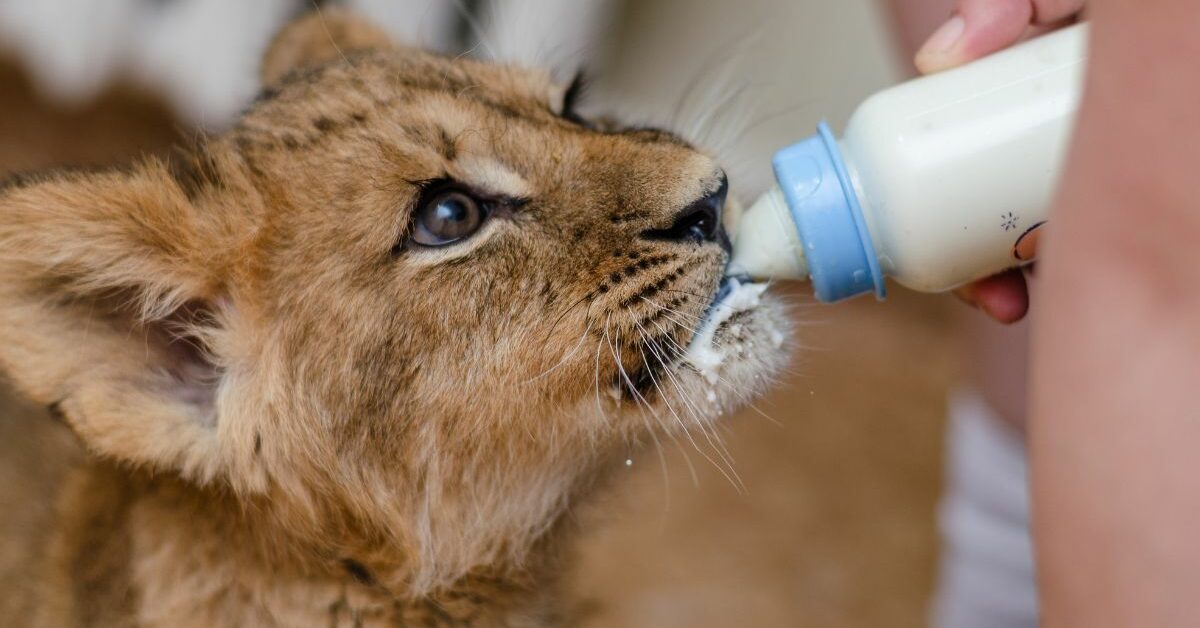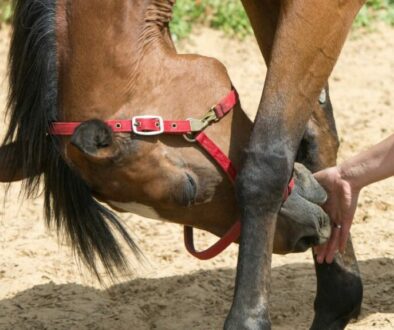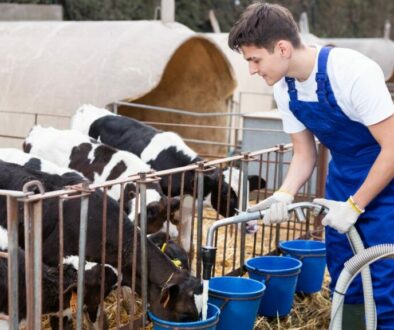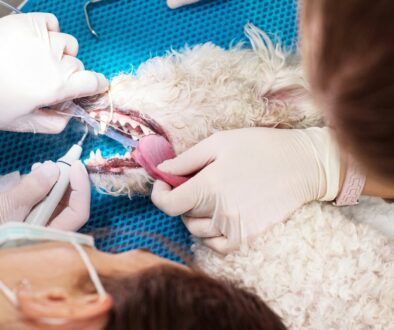How To Become An Animal Caretaker?
If you are passionate about working with animals, becoming an animal caretaker can be a fulfilling career choice. Animal caretakers, also known as animal caretaker assistants or animal handlers, are responsible for providing care and essential services to a range of animals, from household pets to farm animals. In this article, we will discuss the steps to becoming an animal caretaker, the skills needed for this job, what an animal caretaker is, and the benefits of working as one.
Steps To Becoming An Animal Caretaker
Becoming an animal caretaker is a fulfilling career for those who love animals and want to work with them. Animal caretakers are responsible for the welfare of animals in various settings, including zoos, animal hospitals, research facilities, and animal shelters. Here are some steps to follow if you want to become an animal caretaker:
- Educational Requirements:
While formal education is not mandatory, having a certificate or diploma in animal care can increase your chances of getting a job. You can earn a certificate or diploma through a community college or technical school. In these programs, you will learn about animal behavior, nutrition, health, and handling. You will also gain practical experience through internships or hands-on training.
- Gain Experience:
Volunteering at animal shelters, veterinary clinics, or zoos is an excellent way to gain experience working with animals and build your resume. For instance, the Animal Humane Society (AHS) offers various volunteer roles, including animal care, adoption support, and community outreach. Similarly, the American Society for the Prevention of Cruelty to Animals (ASPCA) provides volunteer opportunities in areas such as pet adoptions, animal fostering, and animal rescue and rehabilitation.
You will learn how to feed, clean, and care for animals. You will also learn how to handle animals safely and humanely. Volunteering also shows potential employers that you are passionate about animal welfare and committed to your career. - Acquire Necessary Skills:
An animal caretaker should have excellent communication, problem-solving, and observation skills to identify any animal health problems better. You should be able to work independently or as part of a team. You should also be physically fit and able to lift heavy objects or animals. Animal caretakers must be patient and compassionate, especially when dealing with sick or injured animals.
- Get Certified:
Getting certified shows that you are qualified to perform your duties as an animal caretaker. There are several certifications available, such as the Certified Animal Caretaker (CAC), Approved Veterinary Assistant (AVA) or the Certified Veterinary Assistant (CVA). To get certified, you need to pass an exam that tests your knowledge and skills in animal care. Some certifications require you to have a certain level of education or experience.
- Apply for Jobs:
Once you have the required education and experience, you can start applying for animal caretaker jobs in zoos, animal hospitals, and clinics, or research facilities. You can also look for job opportunities on job boards like USAJOBS or websites dedicated to animal welfare. For instance, the Association of Zoos and Aquariums (AZA) maintains a job board featuring opportunities in accredited zoos and aquariums across the United States.
When applying for jobs, make sure to highlight your education, experience, and certifications. You should also have a strong cover letter and resume that showcases your passion for animal care.
Becoming an animal caretaker requires dedication, hard work, and a love for animals. If you are passionate about animal welfare and want to make a difference in the lives of animals, then becoming an animal caretaker may be the right career path for you.
Skills Needed For Becoming An Animal Caretaker
Becoming an animal caretaker requires a specific set of skills, which includes:
- Patience and kindness towards animals, while also being able to safely handle them.
- Excellent communication and interpersonal skills, as animal caretakers need to communicate with veterinarians, researchers, animal owners, and fellow caretakers.
- Physical fitness and agility, as the job can be physically demanding.
- Ability to identify early signs of illness or discomfort in animals and provide basic first aid if necessary.
- Willingness to work in all weather conditions, including hot and humid weather.
Animal caretakers work in a variety of settings, such as animal shelters, zoos, and veterinary clinics. In these settings, animal caretakers are responsible for feeding, grooming, and exercising animals. They also clean and maintain animal enclosures, provide medical treatment as needed, and monitor the behavior and health of the animals under their care.
Patience and kindness are essential qualities for animal caretakers, as they work with animals that may be frightened, aggressive, or in pain. Animal caretakers must be able to handle animals safely, using proper techniques and equipment, while also providing comfort and reassurance to animals in their care.
Effective communication skills are also critical for animal caretakers, as they work closely with other animal care professionals, such as veterinarians and researchers. Animal caretakers must be able to communicate clearly and professionally, both verbally and in writing, to ensure that animals receive the best possible care.
Physical fitness and agility are important for animal caretakers, as the job can be physically demanding. Animal caretakers may need to lift and carry heavy bags of food or equipment, or move large animals from one location to another. They may also need to stand or walk for long periods of time, or work in awkward positions to clean animal enclosures.
Animal caretakers must be able to identify early signs of illness or discomfort in animals, and provide basic first aid if necessary. They must also be able to administer medications or treatments as prescribed by a veterinarian, and monitor the animals’ response to treatment.
Finally, animal caretakers must be willing to work in all weather conditions, including hot and humid weather. They must also be willing to work weekends, holidays, and evenings, as animal care is a 24/7 job.
In conclusion, becoming an animal caretaker requires a unique set of skills, including patience and kindness towards animals, excellent communication and interpersonal skills, physical fitness and agility, ability to identify early signs of illness or discomfort in animals, and willingness to work in all weather conditions. Animal caretakers play a critical role in ensuring the health and wellbeing of animals under their care.
What is An Animal Caretaker?
An animal caretaker’s primary job is to provide care, attention, and support for animals. This includes everything from providing food, water, and shelter to administering medication and assisting with medical procedures. Animal caretakers play an essential role in ensuring that animals live in clean and healthy environments. They are responsible for monitoring the animals’ behavior and reporting any abnormal behaviors or signs of illness to the veterinarian or supervisor.
Animal caretakers work in a variety of settings, including animal shelters, veterinary clinics, zoos, and research facilities. In each of these settings, animal caretakers have different responsibilities and duties. For example, an animal caretaker at a zoo may be responsible for feeding and caring for a wide range of animals, including lions, tigers, and bears. On the other hand, an animal caretaker at a veterinary clinic may be responsible for providing care for cats and dogs.
Animal caretakers must have a deep understanding of animal behavior and be able to recognize signs of distress or illness. They must also be able to work well with others, as they often work in teams with veterinarians, other animal caretakers, and volunteers. Additionally, animal caretakers must be physically fit and able to lift and move heavy objects, such as bags of food or bales of hay.
Animal caretakers may also be responsible for cleaning and maintaining animal habitats, ensuring that they are safe and comfortable for the animals. This may include cleaning cages, pens, and enclosures, as well as providing fresh bedding and toys for the animals to play with.
Overall, animal caretakers play a vital role in ensuring the health and well-being of animals. They are passionate about their work and are dedicated to providing the best possible care for the animals they work with.
The Benefits of Working as An Animal Caretaker
Working as an animal caretaker can be a truly fulfilling career choice. According to the Bureau of Labor Statistics, the average yearly salary in the United States was around $31,830 as of May 2023. Not only do you get to spend your days with adorable and fascinating creatures, but you also get to make a real difference in their lives. Here are just a few of the many benefits of working as an animal caretaker:
- The satisfaction of helping animals: As an animal caretaker, you’ll be responsible for providing animals with a safe and healthy environment. This means ensuring that they have access to food, water, and shelter, as well as administering any necessary medications or treatments. Knowing that you’re making a positive impact on an animal’s life can be incredibly rewarding.
- A varied and exciting workplace: Animal caretakers work in a variety of settings, including zoos, animal hospitals, clinics, and research facilities. This means that you’ll have the opportunity to work with a wide range of animals, from domestic pets to exotic species, each with their own unique needs and personalities.
- The opportunity to interact with animals: If you’re an animal lover, there’s nothing better than spending your days surrounded by furry (or scaly, or feathery) friends. As an animal caretaker, you’ll get to interact with animals of different species, breeds, and sizes each day, getting to know their individual quirks and personalities.
- A flexible schedule: Many animal caretakers work part-time or on weekends, which can be a great option for those who need a flexible schedule. This can be especially helpful for students, parents, or anyone who has other commitments but still wants to work with animals.
- Assisting in scientific research: Animal caretakers often work in research facilities, where they help to care for animals that are being used in scientific studies. This can be an incredibly rewarding experience, as you’ll be contributing to advances in animal welfare and conservation.
As you can see, there are many benefits to working as an animal caretaker. However, it’s important to note that this career path requires dedication, compassion, and a willingness to learn. While it may not be the highest-paying job, it offers a sense of satisfaction and reward that few other jobs can match. With the right education, experience, and attitude, anyone can become an animal caretaker and make a real difference in the lives of animals.




